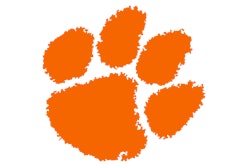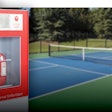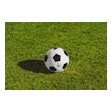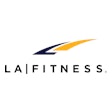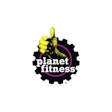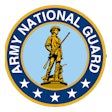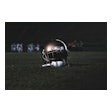Copyright 2017 The Post and Courier
All Rights Reserved
Post & Courier (Charleston, SC)
The days of doctors and trainers asking potential concussion victims routine questions or running them through a series of cognitive and balance drills could be coming to an end.
In the very near future, just a few puffs of air could determine if an athlete has a concussion or not.
Ryan Fiorini, the cofounder and chief operating officer of Blink TBI, hopes to take the guesswork out of diagnosing an athlete's head injury.
Blink TBI is in the process of developing a new technology in concussion detection. With just a few puffs of air and a high-speed camera, the Blink TBI device can measure the blink rate of athletes.
The device was developed about four years ago at the Medical University of South Carolina at the Zucker Institute for Applied Neurosciences. It uses just five puffs of air on the eyes in under 30 seconds. A high-speed camera, capable of taking 280 frames per seconds, records the speed and frequency of eyelid movement.
"It uses a blink reflex. So a small puff of air goes in the corner of your eye and causes you to blink because it's all a reflex," Fiorini said. "The camera is so fast it's able to see a 3- to 5-millisecond difference in your blink."
Research has shown that a person with a concussion actually blinks faster.
"It's kind of a fight-or-flight type of reaction," Fiorini said. "The test is 100 percent accurate as compared to a neurologist. If the neurologist said it was a concussion, the machine said it was a concussion. It can also detect a concussion when no one else sees it is."
Engineers at MUSC created the device, but Fiorini needed to test it and reached out to The Citadel for help in 2015.
Enter Dena Garner, a professor of exercise science at The Citadel. Garner tested more than 300 athletes to determine a baseline test.
"This is a groundbreaking device. I don't think people realize how important the data is that we're currently collecting," Garner said. "As a researcher, this is exciting because people can cheat other concussion tests or devices, but they can't cheat this one.
"What we've found is that you can't stop from blinking. It's a reflex, and there's no way to cheat it. This takes a lot of subjectivity out of testing for a concussion."
The Citadel currently uses the Blink TBI device for its volleyball, basketball, soccer, wrestling and football teams.
Garner said the goal is to compile enough data so there will be no need for a baseline concussion test as they are currently used. Those baseline numbers will be determined by a person's age, sex and background.
"It'll be easier to determine if a person has a concussion and if they need to be held out during a practice or a game," Garner said. "This will take the guesswork out of decisions like that."
Concussions have become headline news in recent years. As more research into concussions and their effects is compiled, Fiorini hopes that the device will help doctors and trainers keep athletes safer.
"You'll know in 20 seconds if someone has a concussion," Fiorini said. "Theoretically, you could call a timeout if your quarterback got hit, take the test, and know if he can go back into the game by the end of the timeout."
Fiorini said the company is currently working on a mobile device that doctors and trainers will be able to use on the sidelines. That could be ready early next year, he said.
In the more-distant future, the device also could be used for sobriety tests by law enforcement.
"It would be more accurate than a Breathalyzer because your blink will be different when you are under the influence of drugs or alcohol," Fiorini said. "Right now, we don't have the data for a test like that, but it's three or four years down the line."
It could even be used to help diagnose neurological diseases like Alzheimer's and Parkinson's disease.
"In theory, anything that affects the brain or the nerves, the device would be able to detect it before any human or blood tests could detect it," Fiorini said.
Read More of Today's AB Headlines
Subscribe to Our Daily E-Newsletter
Terms and Conditions Privacy Policy















